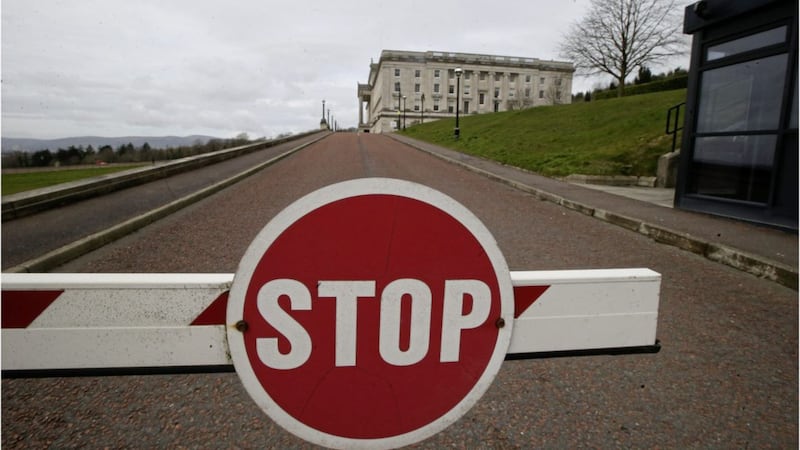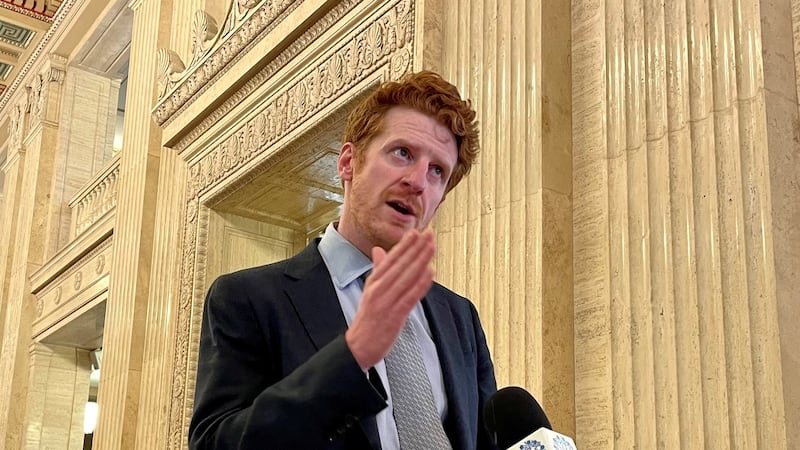As the assembly rises for the final time ahead of the May 5 election Political Correspondent John Manley looks back on a truncated but productive mandate.
THE STORMONT assembly today winds down ahead of its official dissolution at midnight on Sunday, marking the end of a five-year mandate. At the time of writing, no sitting is scheduled, so there’ll be ‘last day of term' feel about the big house, with any MLAs who do attend clearing their desks and perhaps taking advantage of the subsidised restaurant for what may be the final time. While there’s been no executive in place for almost two months, recent weeks have arguably been the busiest in the assembly’s history.
In the almost quarter of a century since the newly-formed legislature first sat in June 1998, following the signing of the Good Friday Agreement, it has been suspended on five separate occasions, cumulatively accounting for almost nine lost years. The most recent downtime was from January 2017-January 2020, when after a smarting election for the DUP and Sinn Féin, New Decade New Approach (NDNA) saw the institutions re-established.
Although officially a 'legislative' assembly, it’s fair to say that for much of its lifetime this description has been largely nominal, with little meaningful legislation, beyond housekeeping matters, passing through the chamber. This mandate has seen important bills on housing, tenancies and domestic abuse emanating from the executive but generally the past record on lawmaking is poor. In the case of abortion provision, and potentially the Irish language, Westminster has had to intervene above Stormont’s head due to the ongoing absence of consensus at the heart of the regional administration. Critics would see this as an abdication of responsibility on thorny issues.
The flurry of activity for MLAs in recent weeks has been due to a raft of private members’ bills (PMBs) – legislation proposed by individual members, as opposed to an executive minister. In past mandates these too have been rare, with just a handful finding their way onto the statute books. However, the final two years of this mandate since NDNA has seen more than a dozen PMBs pass through the chamber, covering a variety of issues. Two made headlines but didn't become law – John Blair's bill on hunting with dogs and Clare Bailey's proposed climate change legislation, which was superseded by Edwin Poots' less ambitious bill.
The debate surrounding Kellie Armstrong's successful Integrated Education PMB got the chattering classes chattering, while Jim Allister sought to prevent another RHI scandal with what is now the Functioning of Government (Miscellaneous Provisions) Act. Mike Nesbitt, meanwhile, modernised regional defamation law and Pat Catney's work led the Department for Communities to take responsibility for his legislation making period products freely available. The Greens, with only two MLAs, brought two successful PMBS. Many have fallen by the wayside, some justifiably, others because they need finessed.
It would appear this increase is entirely organic and has come about through the collective realisation that it’s the only way to get things done. We can therefore expect a similar volume of PMBs when the assembly returns after the election. Backbenchers may well become Stormont's back door legislators, their productivity and vision far outstripping that of the cumbersome executive committee. Whether you agree with particular pieces of legislation or not, most would regard this trend as a good thing, as it demonstrates democracy in action and would appear to be better use of MLAs' time and resources than debating non-binding motions, which are very often tabled with the sole purpose of highlighting division.
Elsewhere, another positive development was the post-NDNA agreement not to deploy the petition of concern, which was used freely over previous mandates to block legislation and nullify motions. The DUP did seek to use one earlier this month to derail Kellie Armstrong’s Integrated Education Private Members' Bill but couldn’t muster the necessary 30 signatures after the Ulster Unionists refused to play ball. It’s taken a couple of decades, but finally it would appear that the devolved assembly is actually beginning to work to improve people’s lives rather than merely reinforce the status quo.
Meanwhile, the winding up of the mandate signals the end of a number of MLAs involvement in frontlines politics. Among those closing their office door for the last time are the DUP’s Jim Wells, Stormont’s longest serving elected representative, his party colleagues George Robinson, Robin Newton, William Humphrey and Paula Bradley, Alliance’s Chris Lyttle, the SDLP’s Sinead Bradley, Sinn Féin's Emma Rogan, independent Trevor Lunn and Speaker Alex Maskey.
Of the 90 MLAs elected in 2017, 19 have subsequently been replaced through co-option, with more than half of those representing Sinn Féin.








